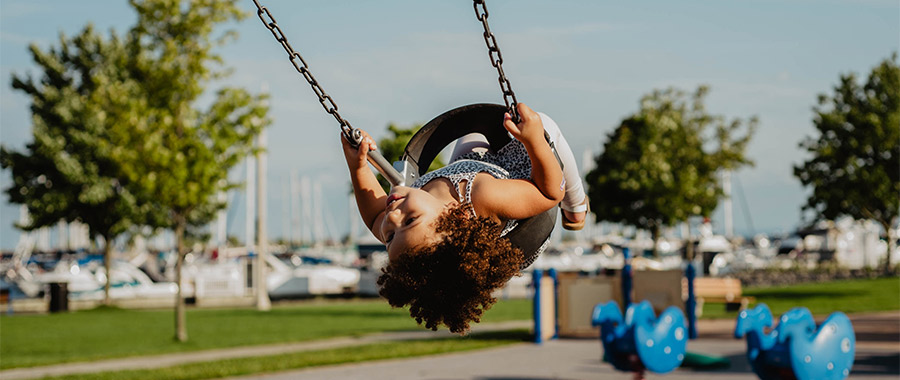The exploration of whether children should inherit their parents’ religion is a profound inquiry that reverberates throughout societies worldwide. Central to the Bahá’í Faith is the notion of individual investigation of truth, a principle that invites members of the community—young and old alike—to engage critically with their beliefs. Thus, while the question pertains to generational transmission of religious tenets, it also underscores the importance of personal autonomy and enlightenment in spiritual practice.
Bahá’í teachings emphasize that faith must not be a mere inheritance but a deliberate choice shaped by knowledge and understanding. The concept of religious identity is intricate, evolving with social, historical, and cultural dynamics. In this sense, the transmission of faith ought not to be an ironclad imposition, but rather a gentle guiding influence that encourages exploration. Children, nurtured within the Bahá’í tradition, are often encouraged to learn about their faith actively, but they are also given the agency to ascertain their beliefs independently.
One of the cornerstones of Bahá’í philosophy is the belief that each person has a unique relationship with the Divine. This individual connection fosters an environment conducive to personal inquiry. Parents can share their beliefs and practices, yet it is incumbent upon the children to discern the validity of such beliefs for themselves. This synthesis of respect for parental guidance and encouragement of individual exploration creates a fertile ground for spiritual growth.
Moreover, the Bahá’í teachings articulate that the objective of religion is to foster unity and cooperation among humanity. In this light, the role of parents becomes pivotal not only in instilling values but also in cultivating an atmosphere of respect for diverse beliefs. By modeling respect for other religions and promoting interfaith dialogue, parents can impart the essence of religious tolerance and openness to their children. Such exposure can arm children with an understanding that while their heritage may be rooted in a particular faith, the diversity of human belief offers a rich tapestry of insights to explore.
When contemplating whether children should inherit their parents’ religion, it is vital to consider the ethical implications of spiritual coercion. Bahá’í teachings strongly disavow any form of compulsion in matters of faith. The notion of free will is paramount; forcing children to adhere to a particular belief system can lead to spiritual resentment and disconnection. Thus, it is essential that parents present their faith as a lived and evolving experience rather than a set of doctrinal mandates, fostering an environment where questions are welcomed, and uncertainties are addressed candidly.
The practice of religious observance within Bahá’í communities encourages children to participate in rituals and community events, which can be invaluable in nurturing a sense of belonging. However, it is crucial that such participation is voluntary, stemming from the children’s innate curiosity and sense of belonging rather than from obligation. Engaging in communal activities can enhance their understanding of the Bahá’í teachings, but it should always be framed as an invitation to explore rather than a requirement.
Furthermore, exploring the historical context of the Bahá’í Faith provides insights into its perspectives on spiritual inheritance. The early advocates of the Bahá’í Faith, including its Founder, Bahá’u’lláh, emphasized the importance of acquiring knowledge and discernment. This foundational belief translates into a modern understanding of spirituality that values critical inquiry over passive acceptance. Children may well benefit from historical narratives and teachings that illuminate how the Bahá’í Faith evolved in response to the changing needs of society.
The age of adolescence is particularly significant in this discussion. During these formative years, individuals often grapple with identity and belief systems. As children transition into adulthood, the autonomy to choose one’s religion becomes profoundly pertinent. This phase should be seen as a critical time when parental guidance can still play a vital role but must also embrace the emerging individuality of the young person. Encouraging discussions about spirituality, belief systems, and ethical values can facilitate an open dialogue, allowing both parents and children to share their perspectives in a mutually enriching way.
In addition to familial influences, the role of community cannot be discounted. The Bahá’í community is designed to be a supportive network that champions the individual’s journey towards understanding. By exposing their children to diverse viewpoints and fostering friendships with peers from varied backgrounds, Bahá’í families can enhance the quest for personal truth. Such cross-cultural exchanges can serve as powerful catalysts for insight, reinforcing the belief that spirituality is a shared human pursuit that transcends individual backgrounds.
In conclusion, while the question of whether children should inherit their parents’ religion is nuanced, Bahá’í teachings advocate for a balance between tradition and personal exploration. Parenting within this faith encourages fostering understanding, cultivating a spirit of inquiry, and respecting the autonomous journey each individual must undertake. The goal is not to impose beliefs but to inspire—a call to nurture the inner light within each child, allowing them the freedom to traverse their spiritual paths. Ultimately, the legacy of faith is not simply what is passed down but what is chosen and embraced in the pursuit of truth and unity.
